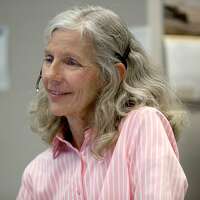Oakland’s vacant-property tax takes effect, sparking hope — and alarm

Kathleen Pender Jan. 26, 2019 Updated: Jan. 26, 2019 4 a.m.
More
CommentsPrint
3
 1of3Oakland real estate agent Mel Copland owns one of several empty lots on Oakwood Court in the Montclair neighborhood. He said it’s too expensive to bring infrastructure to the property and the value of the land has dropped 50 percent since the last recession.Photo: Yalonda M. James / The Chronicle
1of3Oakland real estate agent Mel Copland owns one of several empty lots on Oakwood Court in the Montclair neighborhood. He said it’s too expensive to bring infrastructure to the property and the value of the land has dropped 50 percent since the last recession.Photo: Yalonda M. James / The Chronicle 2of3Eucalyptus trees stand on a vacant lot on Oakwood Court in Oakland’s Montclair neighborhood. Oakland voters passed a vacancy tax, but details about how it will be implemented remain unclear.Photo: Yalonda M. James / The Chronicle
2of3Eucalyptus trees stand on a vacant lot on Oakwood Court in Oakland’s Montclair neighborhood. Oakland voters passed a vacancy tax, but details about how it will be implemented remain unclear.Photo: Yalonda M. James / The Chronicle 3of3Turkeys cross over to a vacant lot on Oakwood Court in Oakland’s Montclair neighborhood. There are 10 exemptions to Oakland’s new vacant-property tax, as described in Measure W, but not a lot of certainty about how it will be implemented.Photo: Yalonda M. James / The Chronicle
3of3Turkeys cross over to a vacant lot on Oakwood Court in Oakland’s Montclair neighborhood. There are 10 exemptions to Oakland’s new vacant-property tax, as described in Measure W, but not a lot of certainty about how it will be implemented.Photo: Yalonda M. James / The ChronicleAs San Francisco supervisors consider putting a vacant-property tax on the November ballot, Oakland is struggling with the reality of implementing one.
Oakland voters in November approved a tax that applies to any privately owned property in the city — including residential, commercial and empty lots — that is not “in use” for more than 50 days in a calendar year starting in 2019. The annual tax is $6,000 per parcel for most properties, regardless of size or value. The tax for condo or duplex units or ground-floor commercial space is $3,000 per year. There are 10 possible exemptions.
The tax will be added to annual property tax bills starting with the one that goes out next year. It will continue for 20 years.
Oakland’s City Council put Measure W on the ballot, saying it would raise $10 million annually, which can only be used for homeless services, affordable housing, programs to fight blight and illegal dumping, administer the tax and defend any possible lawsuits. Measure W passed with 70 percent of the vote.
Among the many issues now facing the city: defining “in use,” identifying vacant properties, clarifying the 10 exemptions, developing software to administer the program and forming a commission on homelessness to recommend how the revenue should be spent.
The City Council could, by ordinance, restrict the tax to certain zones within the city, but has not done so.
In December, the city’s Finance Department sent a letter to owners of 25,000 non-owner-occupied properties warning them about the tax should their property be deemed vacant. The letter set off alarm bells for some owners.
“I thought it was only on vacant homes, not vacant property,” said James Liu, who lives in Fremont and owns five steep lots on Ascot Drive in the Oakland hills. Liu bought the adjacent parcels in 2012 and 2013, thinking — naively, he admits — that he could develop them, despite their 50 percent slope. But architects and engineers told him it wouldn’t be possible. He put them on the market twice, with no takers. Meanwhile he’s paying $3,000 per year in property taxes on each lot, plus another $3,000 per year to have them cleared of debris.
He said the the additional $6,000 per parcel tax is not just about money. “It’s about fairness. It’s not something I realized could happen in America.”
The measure exempts owners “who can demonstrate that exceptional specific circumstances prevent the use or development of the property.” But most owners won’t know if they qualify for this or any exemption until the Finance Department writes rules implementing the measure and the City Council adopts them.
Another provision that merits clarification says, “for parcels with multiple units, whether residential or non-residential, the parcel is not vacant if any unit on it is not vacant. A condominium, duplex, or town house unit under separate ownership is treated as a separate parcel …”
The Finance Department will probably bring an implementing ordinance to the City Council in April, but it could take “a number of meetings” before it’s adopted, said Karen Boyd, a spokeswoman for the city.
Vacancy-tax exemptions
These are 10 exemptions to Oakland’s new vacant-property tax, as described in Measure W. The Finance Department will clarify them in an implementing ordinance, which must be approved by the City Council.
(1) Owner is “very low income,” as defined by the U.S. Department of Housing and Urban Development. The city wouldn’t define it. But HUD’s website says that the income limit in Oakland is $40,700 per year for a one-person household and goes up with family size.
(2) Owner is 65 or older and “low income,” as defined by HUD. That limit is $62,750 for one person.
(3) Owner of any age receives Supplemental Security Income for a disability or Social Security Disability Insurance benefits and has income that does not exceed 250 percent of the 2012 federal poverty guidelines issued by the U.S. Department of Health and Human Services. That limit is $11,170 for one person and goes up with family size.
(4) The tax would create a “financial hardship due to specific factual circumstances.”
(5) The property is vacant because of a “demonstrable hardship that is unrelated to the owner’s personal finances.”
(6) The property is under active construction.
(7) The owner has an active building permit application being processed by the city.
(8) The owner has a “substantially complete application for planning approval” under review.
(9) The owner can prove that “exceptional specific circumstances prevent the use or development of the property.”
(10) The owner is or is controlled by a nonprofit organization.
Read More
In its letter to property owners, the Finance Department said it would “be difficult to answer questions” until the ordinance is adopted. It strongly urged them, in a bold and underlined comment, to “not make any inquiries regarding this letter or the tax at this time.”
It did give them an email address, VacantPropertyTaxInquiry@oaklandca.gov, but said it could take up to 30 days to get their questions answered.
The city’s finance director, Katano Kasaine, urged the council in a May letter to delay implementation for one year, citing “the aggressive timetable required for the implementation of the tax.” The City Council could delay implementation, but there’s no sign it plans to.
The Finance Department estimated it would cost $425,000 per year to administer the tax, plus a one-time startup cost of at least $100,000. Boyd said the city has received a legal challenge to the tax but provided no details.
Oakland Mayor Libby Schaaf supports the tax, her spokesman Justin Berton said in an email. “It’s a novel idea that will generate new resources to address some of Oakland’s biggest challenges, such as homelessness,” Berton said. It also “taxes people who are failing to utilize their property during a housing shortage, which damages overall community vitality.”
Nobody is sure how many vacant properties there are and how many will get an exemption.
Using data from the county assessor, Hayley Raetz, a researcher at the Terner Center for Housing Innovation at UC Berkeley, estimated that there are about 4,000 undeveloped, privately owned lots in Oakland. Most are small lots in residential neighborhoods.
“If approved by Oakland voters, the tax could act as a deterrent for speculation, and encourage owners of vacant parcels to sell or develop their land, ideally unlocking sites for housing,” Raetz wrote in a report. She did not look at lots with homes or businesses on them, because there’s no methodical way to determine whether they’re vacant.
Looking just at an estimated 4,000 vacant lots, the Finance Department said that the tax could bring in $6 million to $10.5 million a year, depending on how many got exemptions.
Building a home or apartment building on raw land is not easy or cheap, and some vacant lots are in areas prone to landslides and wildfires.
Oakland real estate agent Mel Copland owns one of several empty lots on Oakwood Court in the Montclair neighborhood. “The infrastructure is so expensive, to bring, solar, gas and water to the property, plus a private road,” he said, adding that the value of that land has dropped 50 percent since the last recession. “What’s going to happen, people are not going to pay the tax, and you are going to have a lot of defaulted lots.”
Dragos Badeamic, a structural engineer and contractor who lives outside Sacramento, owns three vacant properties on Woodrow Avenue in Oakland., “I was planning to build some houses there, but for family reasons, I could not do that,” he said.
He’s paying about $1,900 per year in property tax on each of the three lots; the vacancy tax would be nearly three times that per lot.
Badeamic grew up in Romania, where the communists imprisoned his grandfather and seized the family’s property, forcing them to flee the country. He said the tax reminds him of what went on in the early days of the communist regime there. “I never thought I was going to see this here, in the bastion of capitalism,” he said.
SPUR, a Bay Area urban planning think tank, said in its voter guide that it supports the idea of a vacant parcel tax, as a way “to help move vacant land into active use and eliminate blight,” but it opposed Measure W because it would be very difficult to implement fairly. “The definition of what constitutes vacancy is very broad,” it said, and “the exemptions are also very broadly defined,” such as a “demonstrable hardship that is not financial.” It also said a flat tax may disproportionately affect small property owners.
Evelyn Sinclair, who owns a vacant lot next to her home in the Oakland hills near Redwood Regional Park, said she objects to the tax because “we shouldn’t be balancing somebody’s project for helping homeless people and urban blight on a tiny minority of people in the city.”
Candice Elder, director of the East Oakland Collective, a Millennial-focused nonprofit, said that “once everything gets ironed out, (the tax) has the potential to help address some of the issues in homelessness and the housing crisis.” She said it won’t overcome all of the obstacles, but “it’s one component of the solution.”
She hopes the tax will spur landowners “with a challenging piece of property, or low-income owners who can’t afford to develop, to work with the city or with nonprofit agencies to reimagine the use of the land.”
James Vann, co-founder of the Homeless Advocacy Working Group, which campaigned for Measure W, said the tax “will probably deplete itself” as vacant lots, homes and buildings are put to use.
Meanwhile in San Francisco, Supervisor Aaron Peskin said in a news conference Wednesday that he wants the Board of Supervisors to put a vacancy tax on the November ballot. The $250-per-day tax would apply to some commercial and multifamily residential properties that are “intentionally” kept vacant for more than six months of the year. Peskin has been talking about a vacancy tax since 2017 but hasn’t introduced any legislation.
Before crafting a tax, San Francisco might want to consider the challenges facing Oakland.
Kathleen Pender is a San Francisco Chronicle columnist. Email: kpender@sfchronicle.com Twitter: @kathpender
No comments:
Post a Comment